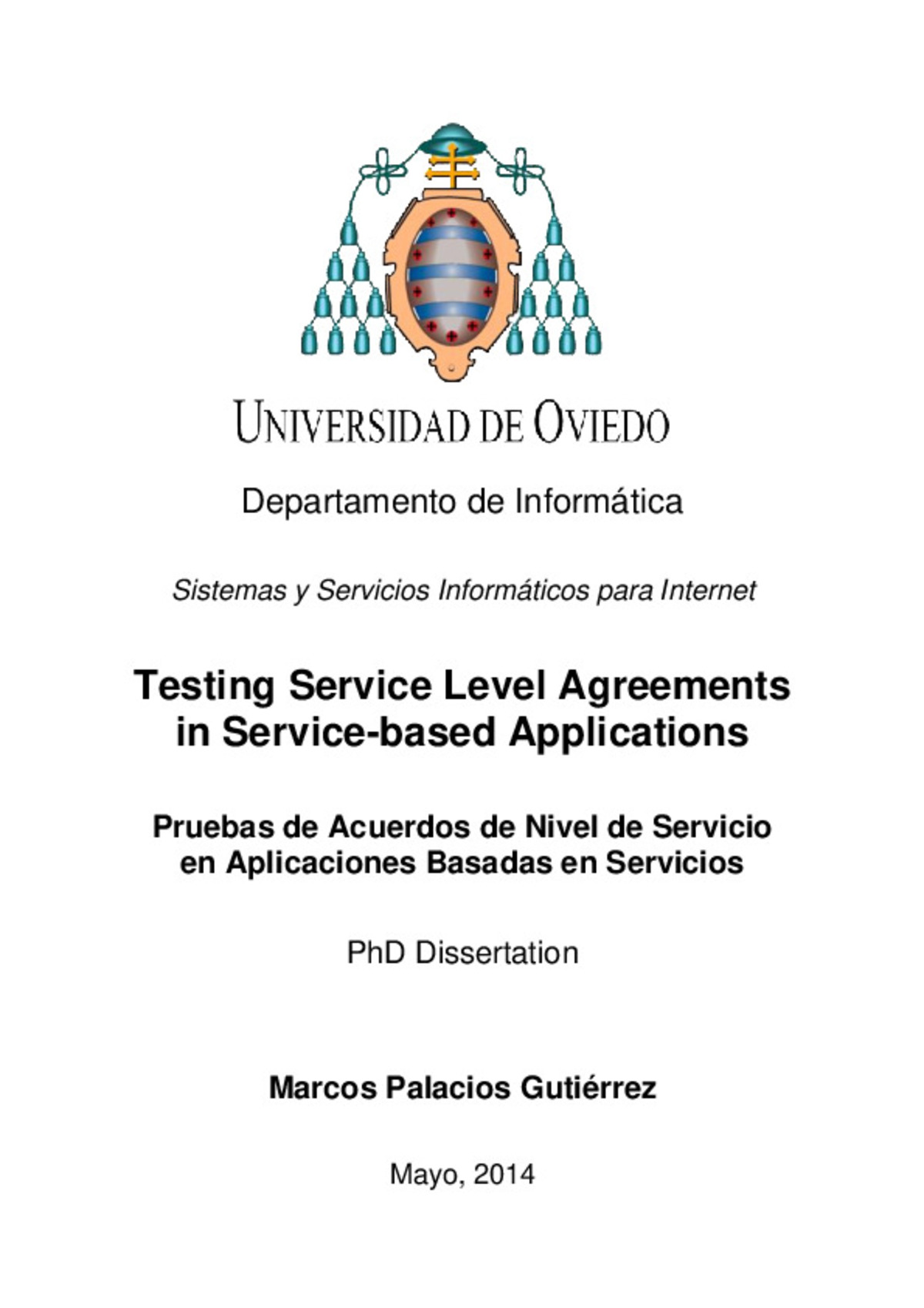Testing service level agreements in service-based applications
Otros títulos:
Pruebas de acuerdos de nivel de servicio en aplicaciones software basadas en servicios
Autor(es) y otros:
Director(es):
Centro/Departamento/Otros:
Palabra(s) clave:
Lenguajes y sistemas informáticos
software
Internet e Intranet
Tecnología de las comunicaciones
Fecha de publicación:
Descripción física:
Resumen:
In the scope of Service Based Applications (SBAs), a Service Level Agreement (SLA) is a contract or document that contains the conditions that must be fulfilled during the provision and consumption of the services. The research hypothesis states that a cost-effective set of test cases can be systematically obtained by means of analyzing the information contained in the SLA, which is specified using the WS-Agreement standard language. The execution of such test cases would contribute to prevent, minimize or mitigate the negative consequences derived from the violations of the SLA. In this PhD the testing of SLA-aware Service Based Applications has been addressed by means of devising SLATF (SLA Testing Framework). SLATF allows identifying a set of test requirements from the information contained in the SLA and, later, deriving the test suites to exercise such requirements. SLATF also proposed a four-valued logic in order to unequivocally evaluate the SLA and its guarantee terms. The identification of test requirements and derivation of test cases in SLATF are performed within two different approaches. On the one hand, the individual guarantee terms of the SLA are considered in order to design the tests. In this case, combinatorial testing techniques are used to combine the test requirements and obtain a reduced number of test cases. On the other hand, the logical relationships between the guarantee terms are also taken into account. In this second case, a coverage based criterion is devised in order to derive the test cases. Both testing approaches presented in this dissertation have been automated in the SLACT (SLA Combinatorial Testing) tool and evaluated in an eHealth service-based scenario.
In the scope of Service Based Applications (SBAs), a Service Level Agreement (SLA) is a contract or document that contains the conditions that must be fulfilled during the provision and consumption of the services. The research hypothesis states that a cost-effective set of test cases can be systematically obtained by means of analyzing the information contained in the SLA, which is specified using the WS-Agreement standard language. The execution of such test cases would contribute to prevent, minimize or mitigate the negative consequences derived from the violations of the SLA. In this PhD the testing of SLA-aware Service Based Applications has been addressed by means of devising SLATF (SLA Testing Framework). SLATF allows identifying a set of test requirements from the information contained in the SLA and, later, deriving the test suites to exercise such requirements. SLATF also proposed a four-valued logic in order to unequivocally evaluate the SLA and its guarantee terms. The identification of test requirements and derivation of test cases in SLATF are performed within two different approaches. On the one hand, the individual guarantee terms of the SLA are considered in order to design the tests. In this case, combinatorial testing techniques are used to combine the test requirements and obtain a reduced number of test cases. On the other hand, the logical relationships between the guarantee terms are also taken into account. In this second case, a coverage based criterion is devised in order to derive the test cases. Both testing approaches presented in this dissertation have been automated in the SLACT (SLA Combinatorial Testing) tool and evaluated in an eHealth service-based scenario.
Notas Locales:
DT(SE) 2014-123
Colecciones
- Tesis [7677]
- Tesis doctorales a texto completo [2172]
Ficheros en el ítem





